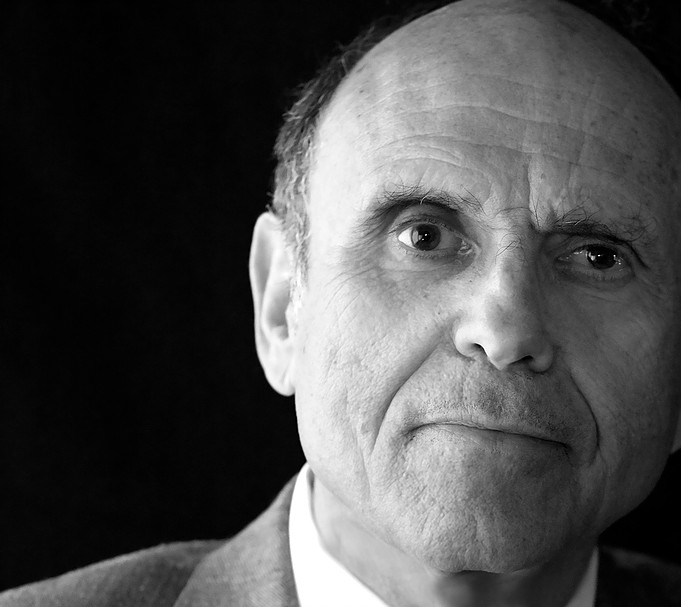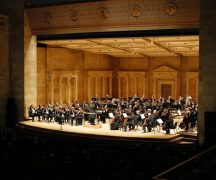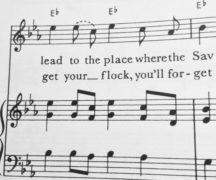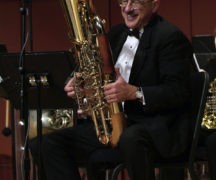By DAVID DUPONT
BG Independent News
In the early morning hours of Nov. 11, 1938 Samuel Adler’s family heard an explosion nearby their home in Mannheim, Germany.
The 10-year-old later learned that it was the chapel at the Jewish Cemetery being bombed. This was the night that would come to be known as Kristallnacht — the night of broken glass, when the Nazis launched their full scale their persecution of Jews, moving beyond harassment to state violence.
Adler’s father, Hugo Adler, a noted cantor, was caught up in the arrests, but released. He tried to leave the country but couldn’t.
A few days after Kristallnacht he and his son went to the central synagogue, which had been destroyed, where they climbed to the loft to collect and rescue as many of the music books, which contained the musical legacy of the congregation. Nazis moved around below where the two worked.
Later the family was able to flee Germany “on the last train,” Adler remembers. “We were scared to death until we left for America.”
A half century after those traumatic events, Adler, now an internationally renowned composer, commemorated Kristallnacht in “Stars in the Dust” with a libretto by the late Samuel Rosenbaum, one of the chief cantors in conservative Judaism.
To commemorate the 80th anniversary of Kristallnacht, “Stars in the Dust” will be performed Sunday, Nov. 18 at 4 p.m., at Temple Shomer Emunim, 6453 Sylvania Ave, Sylvania.
The performance will feature Cantor Andrea Rae Markowicz, soloists Christopher
Scholl, tenor, and Lance Ashmore, baritone, from Bowling Green State University as well as the university’s Collegiate Chorale, conducted by Richard Schnipke, and orchestra, conducted by Emily Freeman Brown, Adler’s wife.
The award-winning actress and singer Michelle Azar, the composer’s niece, will narrate.
Adler, who is retired from the faculties of the Eastman School of Music and the Juilliard School, now lives in Perrysburg.
The libretto, Adler said, chronicles what happened drawing on contemporary accounts, including that of a cantor who sang Kaddish, the traditional prayer of mourning, after seeing the damage wrought on his community.
“It ends in conviction that it must never happen again,” Adler said.
But given anti-Semitism dates back 2000 years, vigilance will always be necessary. “We have to work at it so it doesn’t happen,” the composer said.
Adler, who turned 90 in March, is in the midst of a year-long celebration.
He and Brown have just gotten back from a trip to Europe where his violin concerto and a new choral work “To Speak to Our Time” were performed in his native Germany.
That choral work’s four movements each use a different language beginning with German poet Nelly Sachs’ “Chorus of the Wanderers.” That poem speaks to the plight of refugees who have “stars pinned to our hats,” a reference to the Nazis’ rule that Jews wear a Star of David at all times when out in public. The piece also sets Psalms in Hebrew and Latin, and ends in English with an admonition, Adler said. “We must work for a peaceful world.”





